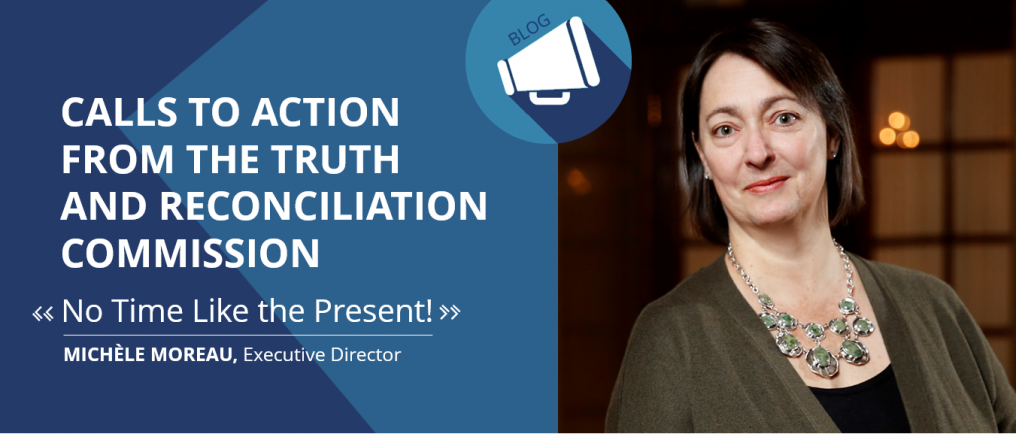Calls to Action from the Truth and Reconciliation Commission – No Time Like the Present!

In the summer of 2015, the Truth and Reconciliation Commission of Canada (TRC) published its Final Report, including no less that 94 Calls to Action: http://www.trc.ca/websites/trcinstitution/File/2015/Findings/Calls_to_Action_English2.pdf
Calls to Action 25 to 42 deal with Justice. Among those, the TRC has issued recommendations to ensure that law students and lawyers receive appropriate cultural competency training, including skills-based training in intercultural competency, conflict resolution, human rights, and anti-racism. If our society is serious about reconciliation, this is the least we can do to make sure we understand each other, to ensure a real partnership can be developed.
The Government of Canada has received these Calls to Action rather positively, adding that it “continues to be committed to a renewed nation-to-nation relationship with Indigenous Peoples based on recognition, rights, respect, co-operation and partnership.”
Governments, federal and provincials/territorials, and other governing bodies, are currently looking at different options to implement those Calls for Action. It will take time – a long time ! – before we see “institutional” action. Does that mean that each of us individually should sit and wait? Certainly not!
We can all begin right now to inform ourselves better on Indigenous history and issues. Here are a few tips to get a head start on our cultural competency training while law schools and law societies are figuring out how this will be integrated into our legal education programs.
There is a popular belief that lawyers are avid readers. Why don’t you start by reading a few books to learn more about Indigenous peoples? A quick Google search will provide many different lists of recommended titles. Here is my favorite one: http://www.cbc.ca/books/2016/06/carolyn-bennett-marks-june-as-indigenous-book-club-month.html
Another way to get more information on Indigenous issues is through your social media. Start following APTN National News and CBC Indigenous on Facebook or Twitter. You can even follow Senator Murray Sinclair who chaired the TRC. He brings a wealth of information on his social media, along with his personal insights. Never boring!
And if you discover that you are eager to learn more, why don’t you learn one of the numerous indigenous languages? You can also enquire about volunteer work to benefit Indigenous peoples in your community.
Movies are also easily available on the National Film Board’s website. One favorite Indigenous filmmaker is Alanis Obomsawin: https://www.nfb.ca/explore-all-directors/alanis-obomsawin/
The list of ways to learn more about First Nations, Metis and Inuit is endless. Just pick one and take it from there. Why wait? There is no time like the present!
Ms. Michèle Moreau, Lawyer
CIAJ Executive Director

